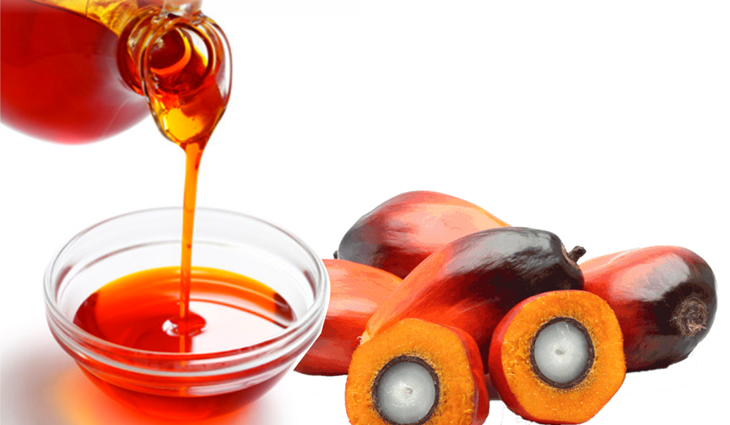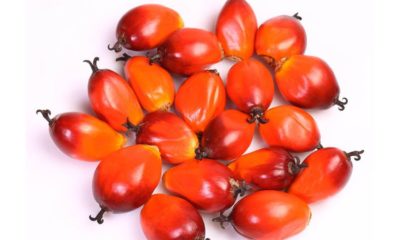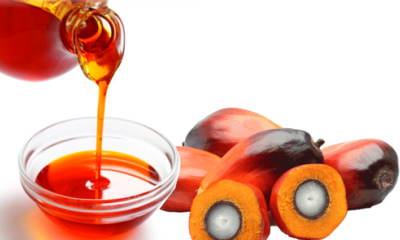The Minister of Trade, Industry and Investment, Niyi Adebayo has announced plans by the Federal Government to collaborate with investors to implement backward integration programme across key selected priority products.
These products include, palm oil, sugar, cassava starch, cotton textiles and garments.
Adebayo disclosed this on Thursday, during his address at the second Andersen Africa-Europe Bridge Conference held virtually, a statement issued by his spokesperson, Ifedayo Sayo said.
The statement was titled ‘Nigeria’s Economic Diversification Agenda achieving positive results – Adebayo’.
It read, “He announced the implementation of the ministry’s backward integration programme across key selected priority products, namely palm oil, sugar, cassava starch, cotton textiles and garments, saying the government was prepared to collaborate with investors to achieve its mandate.
“For palm oil, Adebayo said there was a domestic market opportunity of about $1bn which potential investors could take advantage of.”
On cassava starch, he said while Nigeria remained the largest producer in the world, the ninister said a significant domestic supply gap existed with more than 95 per cent of cassava starch still being imported.
He said the government focus was on bringing in large scale investors to bridge the gap and increase production of cassava starch.
Speaking on cotton, the minister told the gathering that the government strategy was to leverage on the special economic zones for garment production for both local market and export.
He declared that the government was committed to the establishment of special agro-processing zones across the country so as to reduce post-harvest losses, increase value addition to farmers and enhance rural employment.
Adebayo said the government was partnering with the African Development Bank to achieve its goals in this regard, adding that the ministry would be willing to collaborate with potential partners in different areas of this project.
He said, “Similarly, we aim to build at least one agro-processing facility in each of the country’s 109 senatorial district by leveraging available government funding and exploring innovative financing methods such as public-private-partnership and grants.
“Nigeria’s agribusiness sector is full of opportunities across multiple value chains, especially in the area of processing.
“The outlook report from the Organisation of Economic Cooperation and Development and the UN Food and Agriculture Organisation states that the sector will undergo robust growth projected to rise 30 per cent between 2018 and 2028.”
Adebayo also declared that the Federal Government’s diversification agenda was achieving positive results with the recent growth in the country’s Gross Domestic Product largely driven by the non-oil sectors.
He added that despite the view that Nigeria’s economy has historically been driven by oil, recent growth has been driven primarily by the non-oil sectors.
He said, “Despite the view that Nigeria’s economy has historically been driven by oil, recent growth has been driven primarily by the non-oil sectors, such as financial services, telecommunications, entertainment, and of course agriculture. This shows that our diversification agenda is working.”
The minister said the previous year was difficult for the country, he added that the country’s economy was getting back strong and open for business with the investment climate improving.
“In the first half of this year, investment announcements were at $10.1bn, an increase of 100 per cent in 2020.
“Investors from places as diverse as Europe, China, Morocco, and the UK are making strong commitments.”
He added the present regime was working tirelessly to ensure that the commitments turned into ventures, enterprises, and businesses that positively impacted the nation.


 Forex3 weeks ago
Forex3 weeks ago
 Naira2 weeks ago
Naira2 weeks ago
 Billionaire Watch2 weeks ago
Billionaire Watch2 weeks ago



 Naira3 weeks ago
Naira3 weeks ago






 Naira2 weeks ago
Naira2 weeks ago




 Naira1 week ago
Naira1 week ago






 Naira1 week ago
Naira1 week ago




 Naira4 weeks ago
Naira4 weeks ago















